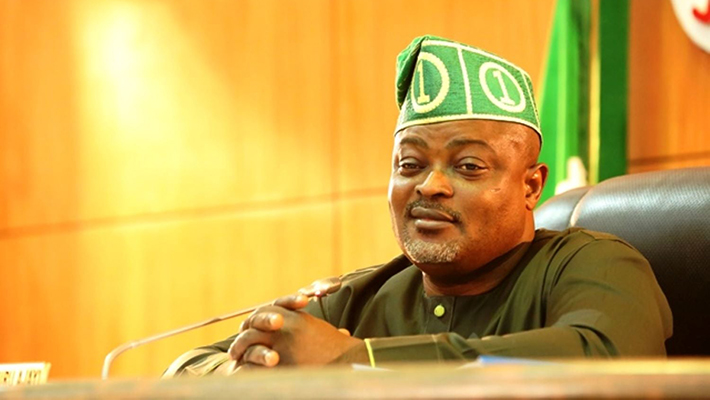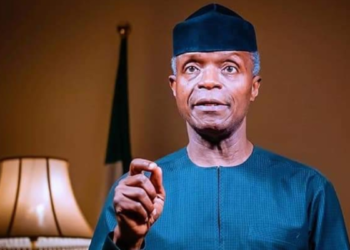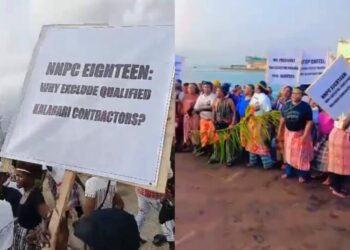This month, Rt. Hon. (Dr.) Mudashiru Ajayi Obasa, Speaker of the Lagos State House of Assembly, celebrates a decade of commanding legislative tour de force, during which he has evolved from the starry-eyed wunderkind of the legislature to being present and pivotal, and integral and invaluable to Lagos’s evolution into Africa’s fourth-biggest economy.
Lagos is Nigeria’s most important state, economic nerve centre, and the largest contributor to her GDP. However, economies don’t grow in isolation; every economy needs the proactive and prodigious collaboration of the three arms of government. Therefore, the success or otherwise of any legislative season has profound impacts on individuals and institutions; the state’s economy, the executive, and the judiciary; and, by extension, the Fourth Estate of the Realm—media.
Instructively, the success of the Lagos economy is not a cosmic roll of the dice. Speaker Obasa has been at the forefront, superintending the legislative arm with unparalleled aplomb and astuteness, tact, and elemental decency, and promoting and promulgating laws for the socio-economic prosperity and progress of the state.
As of 2015, when he assumed office as Speaker, the Lagos economy was estimated to be $136.6 billion, according to Invest in Lagos. Ten years later, Lagos’ GDP is now estimated at $259 billion, making it the second-largest city economy in Africa, just behind Cairo, Egypt.
According to the Africa Wealth Report 2022, released by Henley & Partners in partnership with New World Wealth, Lagos was named the fourth wealthiest city on the African continent, with a total private wealth of $97 billion. That was no mean feat.
Seven years earlier, precisely on Monday, June 8, 2015, Obasa was elected Speaker of the Eighth Assembly of the Lagos State House of Assembly. In his acceptance speech, he promised to work harmoniously with the executive and judicial arms of government to move the state forward. According to him, “We are stewards of the public trust, and our employers—the people—have given us the mandate of keeping Lagos working; a mandate to steer Lagos in the direction of greater opportunities, prosperity, and development.”
In the intervening decade, during which he served as chairman of the Conference of Speakers of State Legislatures of Nigeria (2018-2020) and emerged as the most vocal advocate for legislative autonomy, Obasa has redefined legislative excellence and impact with his parliamentary expertise and experience.
As Nigeria’s most populous state with an estimated 20 million residents, where every Nigerian and non-Nigerian alike comes to seek greener pastures, there were palpable fears and threats of insecurity.
Lagos was experiencing economic growth, and from his leading position, Speaker Obasa recognises that safety and security lie at the heart of a nation’s or state’s prosperity, because significant development cannot exist without them. Therefore, he proposed a bill to create the Lagos State Neighbourhood Safety Corps (LNSC) to assist and complement the police by providing valuable intelligence for crime prevention and facilitating the arrest of perpetrators of criminal activities in the state.
Also, to address the unemployment ravaging Lagos youths, Obasa fast-tracked the bill to establish the Lagos State Employment Trust Fund (LSETF), whose objectives include facilitating employment opportunities and entrepreneurial development for Lagos residents, particularly focusing on providing access to affordable financing for small businesses, leading to job and wealth creation in the state.
According to the management of the LSETF, “Since inception, our interventions have supported 40,000 micro, small, and medium enterprises (MSMEs), created 200,000 direct and indirect jobs, and provided access to 12,000 skill development interventions/initiatives to the youth and women in rural and peri-urban locations.”
Away from the economy, the state Assembly under Obasa has prioritised the health and well-being of Lagosians. One of the efforts in this regard is the establishment of the Lagos State Cancer Research Institute Law of 2017 to promote, aid, and coordinate cancer research and disease control.
Not forgetting, of course, the Lagos State Mental Health Service Law, 2018, which provides for the protection and care of individuals with mental health conditions and substance abuse, emphasizes the rights of patients, including the right to treatment close to their domicile, and the same rights as physically ill persons. The law also focuses on integrating mental health services into primary healthcare, providing comprehensive coverage, and fostering inter-sectoral collaboration.
When the corona virus pandemic broke in 2020, Speaker Obasa initiated the Emergency Corona virus Pandemic Bill 2020, which was promptly passed into law to countervail and combat the spread of the virus in the state and allow Governor Babajide Sanwo-Olu the legislative concurrence to expend money required to effectively contain the virus and enforce compliance by Lagosians.
Depending on what side of the divide you are gauging his achievements from, perhaps the most youth-centric law made by the Assembly under Obasa was to establish the Lagos State University of Science and Technology and the Lagos State University of Education in 2021 for the benefit of thousands of youth desirous of genuine higher education. At the time, Lagos had only the Lagos State University with its limited capacity. Today, the two universities have a combined population of over 12,000 students.
The effectual and extensive laws made by the Obasa-led Assembly are all-embracing yet too numerous to chronicle in this piece. But copious mention must be made of his activities outside the House. Agege, his constituency, hitherto a boisterous, chaotic, seedy community, has witnessed rapid infrastructural development comparable to any developed Nigerian city. While Agege retains its fast-paced nature, it has become more sedate and alluring in outlook and liveability.
Among his constituents, he spreads joy daily, and the catalogue of his amazing compassion and superior culture of philanthropy abounds everywhere, whether in health, education, or youth empowerment. He is there when his people, the needy and less privileged, need him, effortlessly demonstrating concern and compassion, helping them look forward and not backward, and raising their spirits rather than stoking their fears.
Indeed, just about anyone can become a legislator with ample resources for electioneering, meeting constitutional requirements, and winning the popular vote. However, if the process were as easy as it reads on paper, excelling as a legislator would be a different kettle of fish entirely because there’s no one-size-fits-all metric to political success. Now, to win elections to do six consecutive terms as a legislator in one of the most populous local governments in Lagos is one for the books.
First elected in 2003 at the age of 31 as the member representing Agege Constituency 1, Obasa would, by 2027, become arguably the longest-serving state legislator in the country and the longest-serving Speaker of the Lagos State Assembly. At the time of his ascension to the Office of Speaker, he was a few months shy of his 43rd birthday, but had packed a lot of political experience and leadership lessons into his youthful age that would come in handy as he adroitly steered the ship of the assembly.
A steady and stabilizing legislative force, Obasa, a child of grace and sheer political doggedness, is assertive without being abrasive. He is flawed, like every other human, but unwaveringly firm and focused on his deliverables as a legislator and first among equals. He is also imbued with a rare ability to put an issue on the front burner that wouldn’t normally generate a buzz, thus, trumping altruism over individualism, while concurrently helping the Assembly to live up to its vision “to be the leading light and pathfinder for Nigerian and African Legislatures.”
Cheers to many more decades of peerless service to humanity, Lagos State, and Nigeria.





